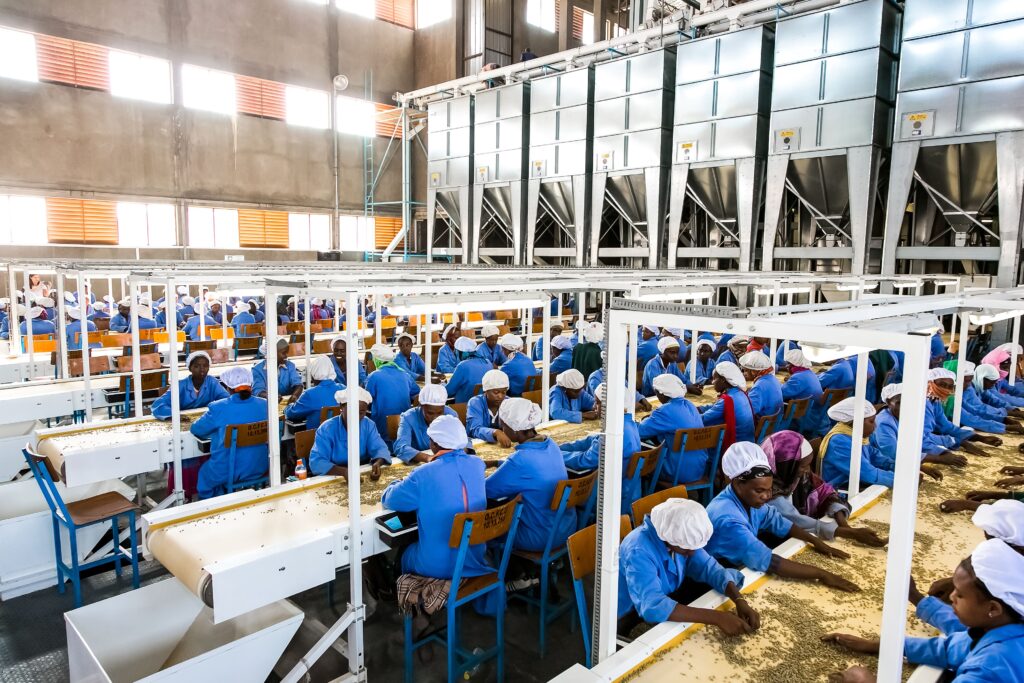- Tanzania seeks to increase the employability of its graduates and youth in general through a comprehensive skills development program.
- Private sector-led collaboration is vital to increase youth employability, especially for graduates.
- In liaison with the private sector, the government will conduct on-the-job training for graduates to improve employability.
Tanzania’s third five-year development plan focuses on creating employment for its fast-growing youth population. The country plans to increase the employability of its graduates and youth in general through a comprehensive skills development program.
According to a report, Tanzania’s five-year development plan will cut unemployment from 9 per cent in 2019 to 8 per cent by 2025/26.
Tanzania youth employment
How will Tanzania achieve this ambitious objective? According to the Minister of State in charge of Work, Youth, Employment, and the Disabled, Dr. Joyce Ndalichako, skills development will be the plan’s secret ingredient.
Along with skills development, the government will also institute what it calls on-the-job training for graduates. This program hopes to sharpen real-life job scenarios for graduates allowing them to enter the job market as experienced individuals.
“We believe that the solution to unemployment lies in adequate collaboration with employers through the employers association called ATE,…we will focus on issues such as lack of skills for young people and on-job-training opportunities,” Dr. Joyce Ndalichako told a press meeting.
According to the minister, the government of Tanzania hopes to grow the number of graduates with apprenticeship training from a low 46,000 in 2019/20 to a high of 231,000 by 2025/26.
Similarly, the third Five-Year Development Plan (2021/22 – 2025/26) aims to increase the number of trained graduates from 30,000 as of 2019–20 to 150,000 by 2025–2026.
In his comments at the press meeting, ATE board chairman Oscar Mgaya was confident that the government plan would work. He said that working in partnership would first encourage companies to institute these training programs for graduates.
Hands-on training
By so doing, the Board Chairman said, they will give the graduates hands-on training, which in turn will make them much more employment ready,
Currently, most employers shy away from taking in graduates due to their lack of experience. He said the planned hands-on training will help bridge this skill gap and prepare graduates for employment.
The government plan would support the growth of a competitive and sustainable economy. Should the plan achieve its objectives, the result will be graduates with the skills necessary to join the domestic and international job markets.
“Improving the laws and systems that regulate labor and employment issues to bring productivity to the workplace and continue to generally stimulate the participation of the private sector in developing the economy of our country in collaboration with various development stakeholders including the government,” local media quotes the ATE Board Chairman.
The plan is heavily hinged on the private sector’s understanding and participation in resolving of unemployment in the country. Unemployment affects all industries because it affects demand in the long run and dependency, which again affects the availability of cash.
Employability of graduates
With private sector participation to increase the employability of graduates through skill development, the country also hopes to bridge the current gender equality gap in the workforce.
Under the same plan, the government is looking to improve employment for persons living with disabilities and other minority groups as well. The program will also help fight climate change by adopting green transition initiatives.
In his closing statements, the ATE Chairperson asserted, “As chairman, my motivation with my new board includes continuing to push agendas to promote the country’s economy and investment but also to contribute to the well-being of ATE.”
“ATE in the recent period has been doing very well, and this has even attracted external stakeholders to continue working with ATE, and now we have close cooperation with other Ministries such as the Ministry of Education through various projects of skill development in the country,” he said.
Also Read: Tanzania and Germany partner to boost graduates’ marketability
Tanzania youth employment status
According to the UN, youth employment in Tanzania remains a major challenge. In Tanzania, youth unemployment is well above 18.5 per cent. What is strange is that while unemployment is growing, the country’s economy is doing very well.
This paradox calls for a re-look at the employment system used to take in new job entrants in the country.
“Unfortunately, the rapid gains in economic growth and education have not translated into productive and decent employment significant enough in alleviating poverty,” says the UN.
In a recent report, the UN says it is working to resolve the matter through the leadership of the ILO. The ILO is, in turn, working to support national efforts in promoting youth employment to create wealth and empower the youth.
The UN is working to boost employment in Tanzania under its ‘Delivering as One’ (DaO) agenda. Under the DaO, the UN is promoting a human rights-based approach to programming government efforts.
Youth employment challenge
The report emphasizes the UN’s commitment to fostering equitable growth, poverty reduction, and inclusivity. It aims to address the youth employment challenge in Tanzania, encompassing issues like unemployment, underemployment, and poor working conditions.
The joint program’s focus areas include sustainable enterprise development, decent work opportunities for youth, agriculture productivity enhancement, skills development, and labor market information systems
This program will develop agricultural value-added chains through crop processing and packaging. Business Development Services support will be offered to scale up and promote youth innovation.
The program will also seek to create opportunities for disadvantaged young women to gain knowledge and develop skills in business development. It will also involve improving access to financial services for youth and assisting informal businesses to graduate into formal enterprises.
Vocational training
The program will establish and strengthen the existing Rural Youth Employment Model, which has several Junior Farmer Field and Life Schools operating under a Private Public Partnership model.
With the help;p of the ILO, the government hopes to improve vocational training in the country. Already the country has a vast network of informal apprenticeships called VETA which it hopes to develop even further.
ETA Chairman said the program would look at creating linkages between businesses and universities under the support career centers plan. They will also strengthen institutional capacities to support youth entrepreneurship initiatives.
Finally and very importantly is the building of labour market information systems. This helps inform policy formulation and monitoring of youth employment programmes in the country. There is also a need to link the country’s Labour Market Information System (LMIS) and Local Government Authority (LGA) database. This aims at ensuring there is on-the-ground real data to work with.











